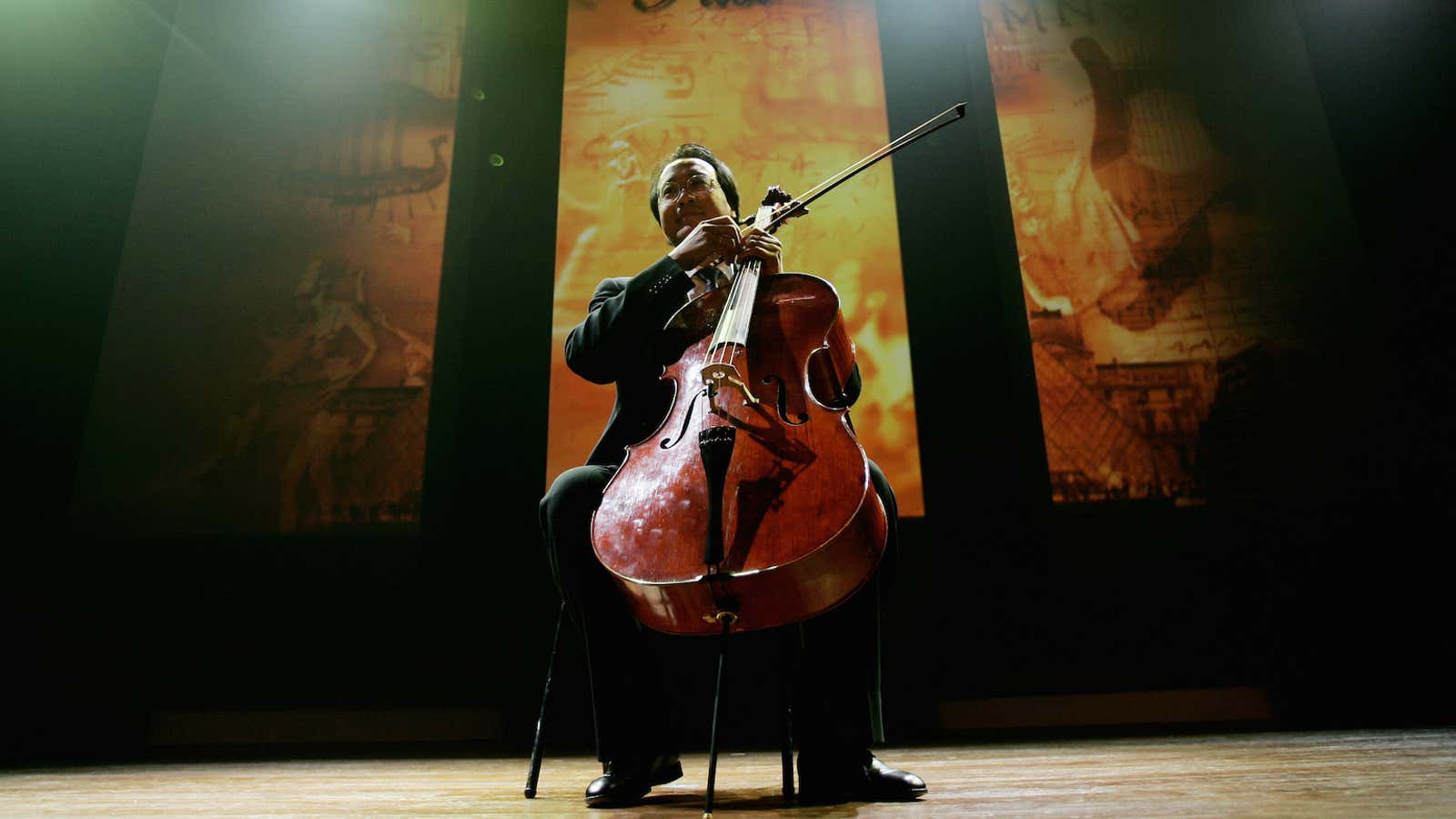Parents who relocate to new continent with a young child often worry that it will damage the child’s sense of security and disrupt important relationships. But if the cellist Yo-Yo Ma’s story is any guide, a major move at an impressionable age can be rewarding for at least one reason: It helps to foster curiosity about the world.
Ma was born in Paris to Chinese parents who moved their family to New York when he was seven years old. “Imagine a seven-year-old’s mind, going from a Parisian landscape of not tall buildings, but very interesting rooftops—tiled rooftops, sometimes with chimneys and whatever—to the landscape of rectangular buildings” topped with “odd, wooden sort of barrels,” Ma told Krista Tippett, host of the public radio program On Being.
The transition taught him that the world isn’t the way it is because it’s always been that way; rather, it’s because in the course of human development, people made choices about how to shape their surroundings. “It made me think, gee, who would have built that? What happened here? Somebody did it, right?” he said. The young Ma even wondered why loaves of bread in the United States were square, so unlike the thin baguettes he was used to.
Eventually, Ma developed a habit of asking two questions about every new item or larger situation he encountered: “Who did this, and why?”
In media interviews over the years, he has explained how these two questions have pushed him to gain a deeper understanding of people’s habits, other cultures, history, and music itself. In 2015, when the Washington Post asked him if there was any type of music he didn’t like, Ma said: “If something sounds cacophonous to me, I try to approach it without judgment. It’s almost like a murder mystery. Who did this, and why? If you start asking these questions, there’s nothing that isn’t interesting.”
He also told Time Out Beijing that those two questions “can be incredibly helpful in decoding the music of creators that are no longer with us,” a process that he calls “forensic musicology.”
“The constant for understanding is always: ‘who did it and why?’” he said.
Ma’s pursuit of answers to his trademark two questions led him to study anthropology at Harvard for his undergraduate degree, despite already being a professional musician. It also helps explain why, in 1998, he created the Silk Road Project, which assembles musicians from around the world to play, tour, and learn from each other together.
While studies have looked at ways that teachers can pique a student’s curiosity in a classroom, there’s little research on what practices adults can adopt to hang onto a curious nature. But we do know it’s a worthy goal, and potentially one that can shape us well into adulthood. In a 2012 study published in the Journal of Organizational Behavior, work-related curiosity was seen as a predictor of career achievement, as important as 12 other factors used to assess and hire employees, such as emotional stability, fluid intelligence, agreeableness, and orientation to customer service.
Yet as British writer Ian Leslie explains in his book Curious: The Desire to Know and Why Your Future Depends On It, most people tend to become less curious with age. Fortunately, we can learn from people who have managed to maintain the spark.
